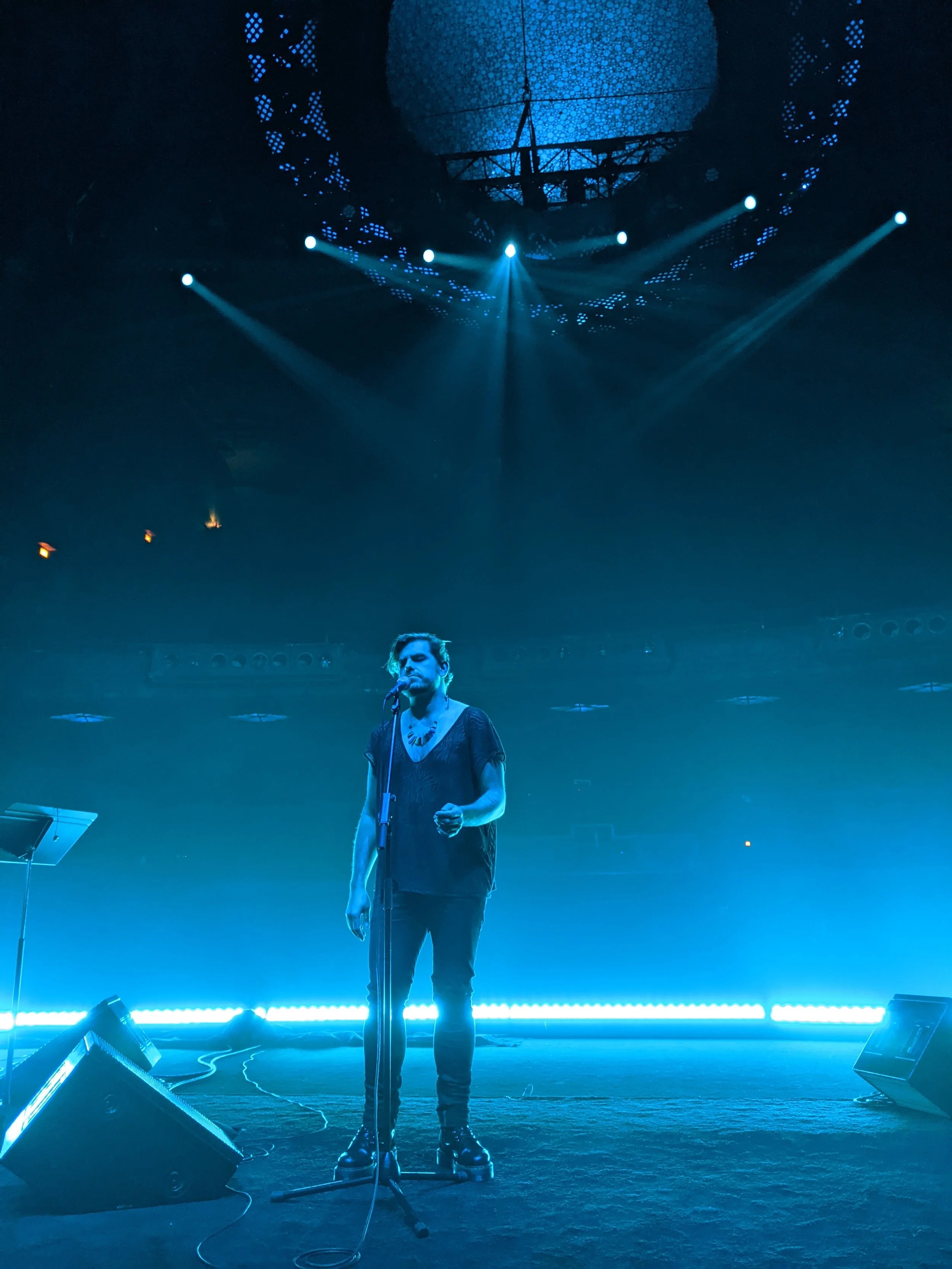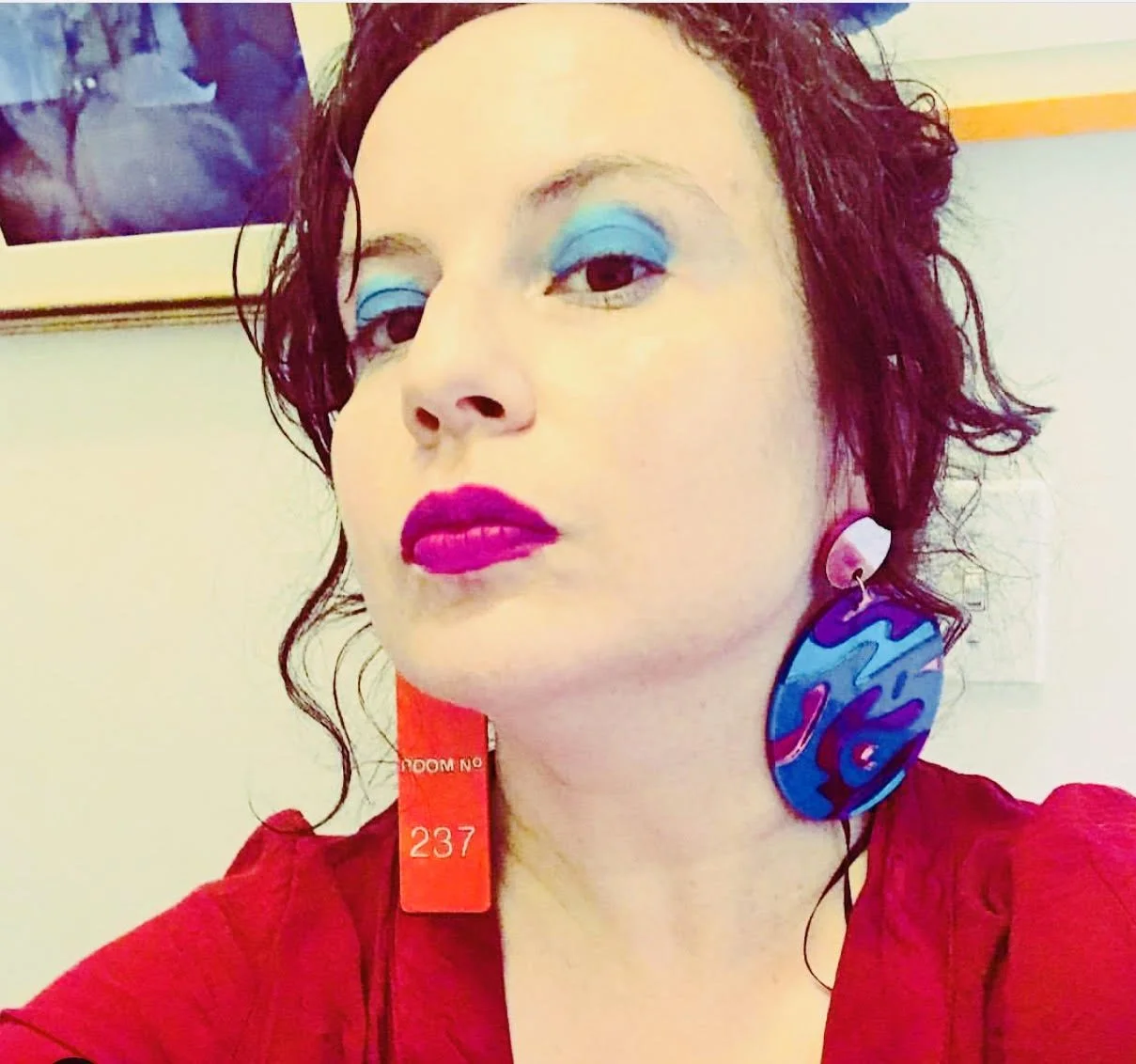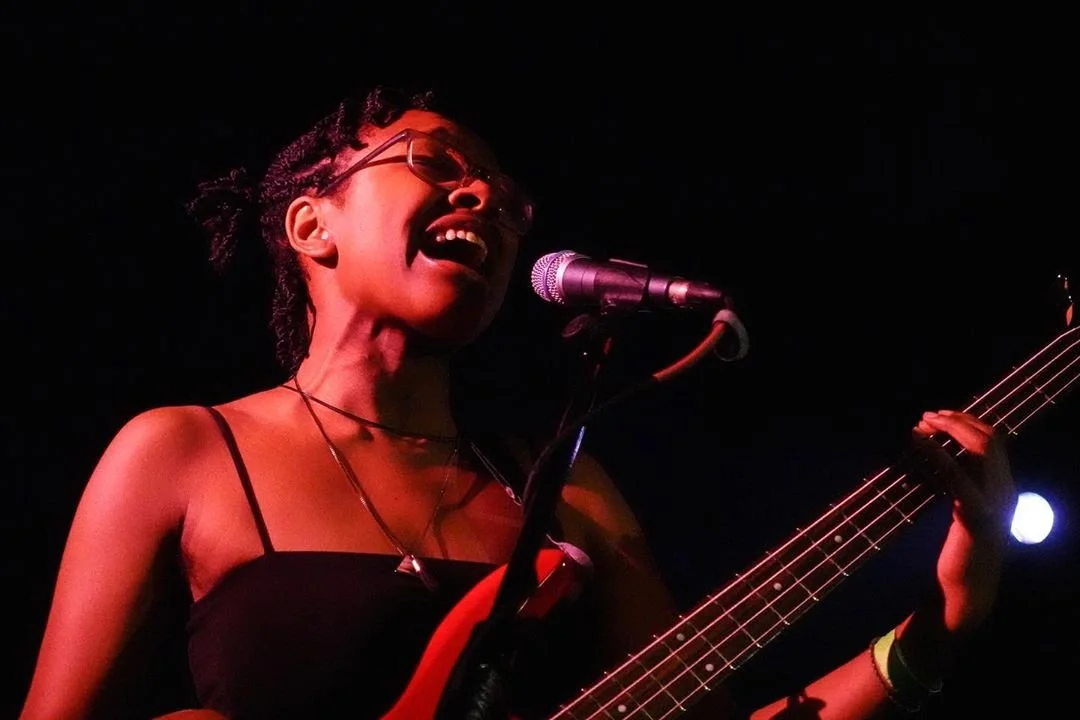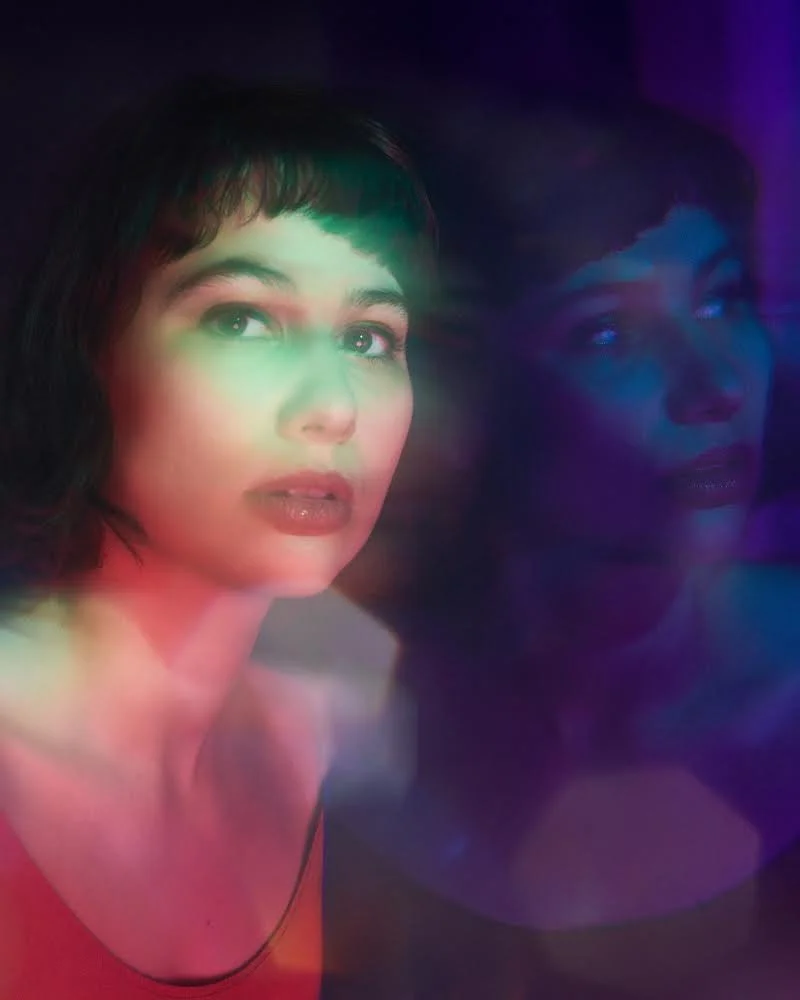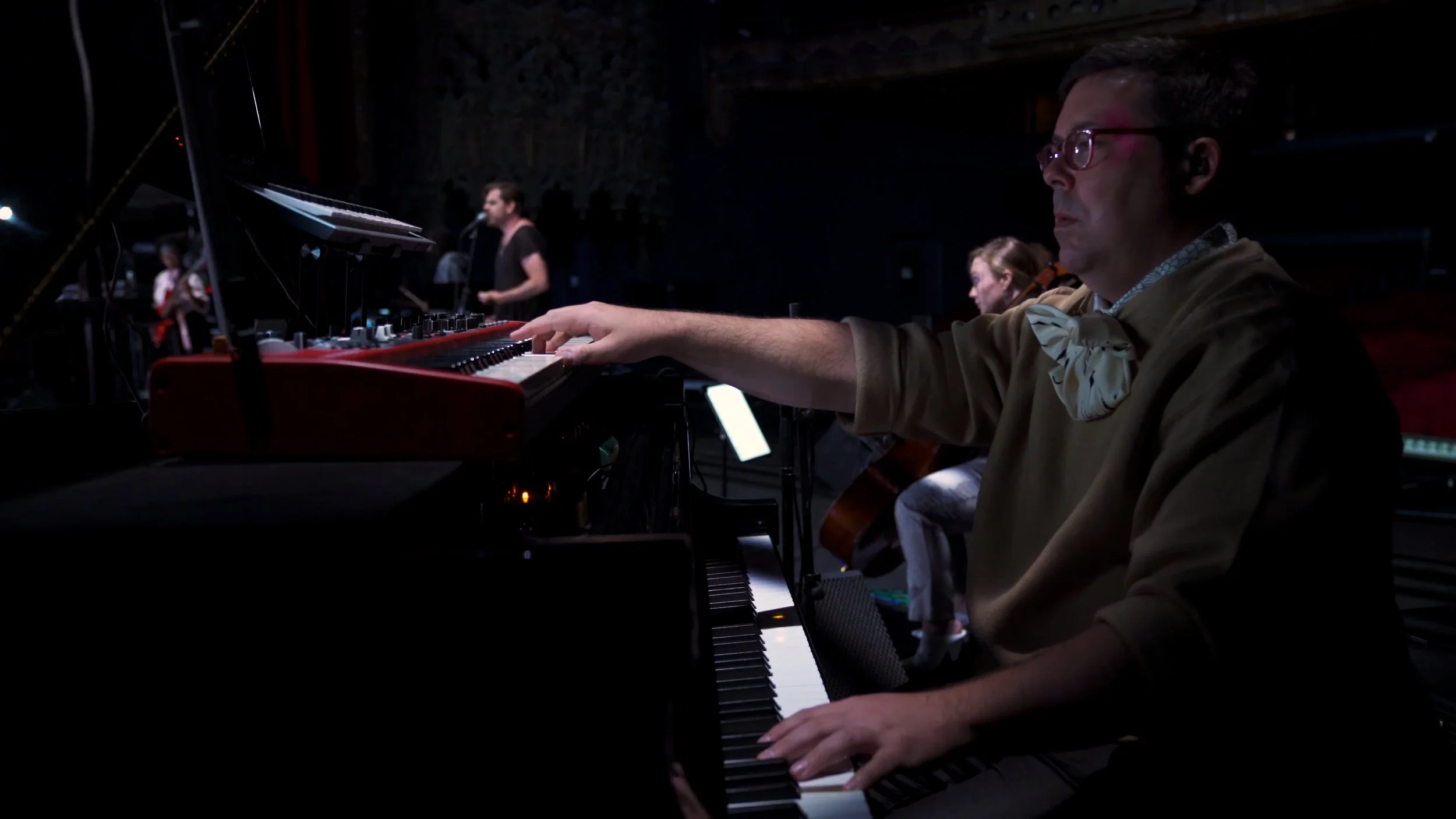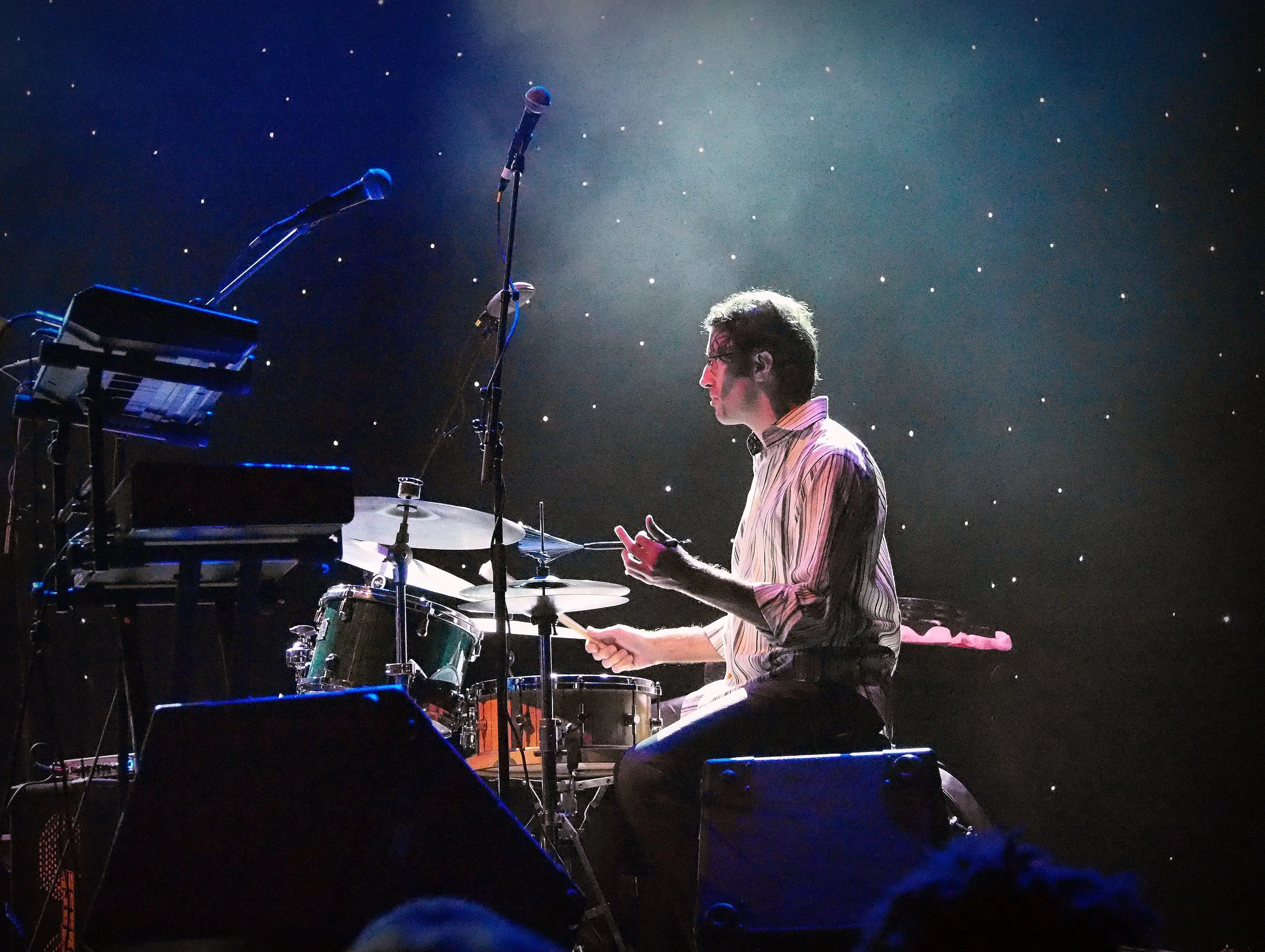DOROTHEA
The latest project from composer, singer, bandleader and two-time Grammy-nominated recording artist Ted Hearne, Dorothea is the collaboration behind the kaleidoscopic and lush post-pop songs embodying the pathos-riddled, darkly funny poems of Dorothea Lasky, with synth beats, rhapsodic textures and the heavenly vocals of “Los Angeles based polymath” electronic musician Eliza Bagg.
"I have a very personal relationship to this poetry, and felt as we were collaborating on this project that a new spirit was emerging,” said Hearne. “It's the spirit of internal conflict, the struggle to unite the wildness of the true self with presentation in space and time: the snake eating its own tail, sometimes ribald and feral, sometimes self-loathing, sometimes narcissistic, always folding in on itself, somewhere between desperate to be earnest and genuine and unable to take itself seriously. This is the debut of that multi-headed spirit, Dorothea."
music by Ted Hearne in collaboration with the musicians of Dorothea
text by Dorothea Lasky
Ted Hearne and Eliza Bagg, vocals
Nathan Koci, keyboards
Ron Wiltrout, drums
Ayanna Woods, bass
Taylor Levine, guitar
Ashley Bathgate, cello
Diana Wade, viola
This music was commissioned by Carnegie Hall, with additional commissioning support provided by SPCO Liquid Music Concert Series, Walker Art Center, and Linda and Stuart Nelson.
Special thanks to Kate Nordstrum.
WATCH THE DOROTHEA DEBUT
IN THIS FULL-LENGTH PERFORMANCE VIDEO
PRODUCED BY CAP-UCLA (PREMIERE: MAY 15, 2021)
DOROTHEA LASKY
Dorothea Lasky
Award-winning American poet Dorothea Lasky is the author of five collections of poetry and is co-editor of Open the Door: How to Excite Young People About Poetry (2013). Her poems have appeared in a number of prominent publications, including The New Yorker, Paris Review and American Poetry Review. Known for her colloquial, even slangy style and dramatic readings, Lasky acknowledges that “there is a kind of arrogance, a kind of supreme power, that when infused with a little real humility and expertise, makes a poem. Because the poem is always about the speaker.”
AYANNA WOODS
DIANA WADE
TED HEARNE
ASHLEY BATHGATE
ELIZA BAGG
NATHAN KOCI
RON WILTROUT

